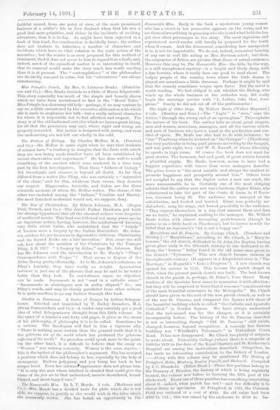The Rise of Christendom. By Edwin Johnson, M.A. (Kogan Paul,
Trench, and Co.)—The Jesuit Father Hardouin put forth the strange hypothesis that all the classical writers were forgeries of mediaeval monks. This lead was followed not many years ago by an ingenious writer, having, however, the misfortune of knowing very little about Latin, who maintained that the " Annals " of Tacitus were a forgery by the Italian Bracciolini. Mr. John- son outdoes his predecessors in dq,structive criticism. Christianity and its Sacred Books are a late invention ! But, some one will ask, how about the mention of the Christians by the Younger Pliny, A D. 112 P "A forgery by Aldus," says Mr. Johnson. But has Mr. Johnson road the introduction to Mr. Hardy's " Pliny's Correspondence with Trajan " P That seems to dispose of the Aldus theory pretty effectually. As to Mr. Johnson's criticisms on Pliny's Latinity, they have really no weight. Ignorantiam instruere is just one of the phrases that may be said to be better Latin than they look. To cunctationem regere, no objection can be made. Sacramento is not "used in a catholic sense." 4‘ Sacramento se obstringere non in scelus aliquod," hc., are Pliny's words, and may be closely paralleled from other writers. It is quite needless to go any further through this book.


































 Previous page
Previous page